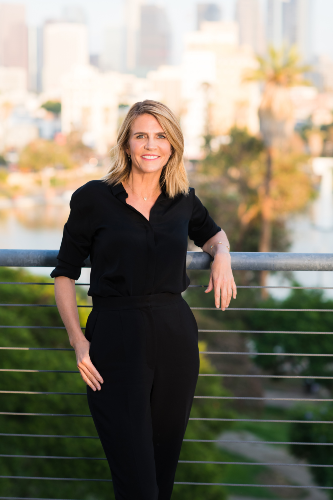
FilmL.A. Inc., the partner film office for the city and County of Los Angeles, issued its third quarter findings, reporting a total of 10,127 shoot days, the third-strongest quarter for production in 26 years. Previous record-breaking quarters for filming levels were in the fourth quarters of 2018 (recording 10,359 shooting days) and 2016 (10,170 shooting days).
The increase has been building. From the second quarter of this year to the third quarter, FilmLA recorded only an increase of 3.4% in shoot days, up from 9,791 days between April 1 and June 30. Year over year, however, the number of third quarter shooting days marked a 141.2% increase from 4,199 when pandemic-related shutdowns stalled many productions in 2020.
“The biggest takeaway from this report is that the pace of local production continues to increase,” FilmLA President Paul Audley said in a statement. “The late-pandemic recovery is uneven in some ways, but community receptiveness to filming is steady, and the work opportunities are undeniably there.”
FilmLA listed a number of broadcast TV series that filmed during the past quarter in Los Angeles, such as CBS’ “SEAL Team” and “NCIS: Los Angeles,” NBC’s “Mr. Mayor” and “This is Us,” and ABC’s “The Rookie.” Showtime filmed two of the network’s new series in L.A.: “Super Pumped” and an untitled Los Angeles Lakers project, and HBO Max, Hulu and Netflix Inc. all shot series locally. Netflix, Paramount Pictures and New Line Features also all shot features using Los Angeles facilities.
On location
On location
Sokoloff said Hackman made significant efforts to prioritize health and safety standards across the soundstages in the company’s portfolio, which includes 46 facilities in Los Angeles and more than 100 around the globe.
Demand also continues to increase for technological upgrades such as Volume, a 270-degree LED video wall at Hackman’s MBS Media Campus that has enabled productions like Disney Plus’ “The Mandalorian,” which has filmed there since its first season, to create photorealistic backdrops for a variety of locations.
Sokoloff didn’t provide exact numbers but said Hackman’s spaces were consistently posting occupancy rates of approximately 95% with the remaining time primarily representing “frictional vacancy” as shows come and go.
“As technology advances and as Covid protocols become a more normal course of the production process, the stage volume has actually become more important,” he said. “What we’re seeing in our facilities is not only an incredibly steady and unmet demand for stage space but a race toward modern stage volumes that provide the technological infrastructure that today’s streaming and production customers are really looking to incorporate into the content that they’re making.”
New incentives
New incentives
Newsom signed SB 144 into law July 21, providing an additional $15-million-per-year increase in tax credits for fiscal 2021-22 and 2022-23 to $71.1 million, up from $56.1 million, for the express purpose of relocating series.
California’s tax credit program has been responsible for 25 TV series relocating since 2015, and, to date, 158 television projects have been selected for tax credits since its implementation. “Promised Land” will relocate from Georgia while “Mysterious Benedict Society” will do so from Vancouver, British Columbia. For the two shows’ first seasons in California, the Film Commission projects they will generate a combined $82.5 million in “qualified” spending, which the state defines as below-the-line wages for California workers and in-state vendor payments.
“The new expansion of our tax credit program, it really is working to do exactly what it’s supposed to be doing, and that’s to bring more jobs and spending and opportunity to California,” California Film Commission Executive Director Colleen Bell said. “It’s a point of pride and our legacy in California that we’re entertaining the world, but production is also big business — and we continue to look at how we can improve our competitiveness.”
Prior to the pandemic and laws like SB 144, California legislators had fought — often in vain — to retain production work that had relocated to other states for their attractive tax incentives. Georgia’s Entertainment Industry Investment Act, for example, offers a 20% tax credit to companies that spend $500,000 or more in the state during production and post-production, and that spending can include a single production or the aggregated total of all projects they may mount in a single tax year.
Bell further highlighted aspects of the recent incentives California implemented with its expansion of SB 144, such as the $150 million in credits for productions that film in renovated or newly constructed soundstages, and the Pilot Skills Career Pathways Program, which targets individuals from underrepresented areas for training in entertainment production jobs.
“With this increase in demand is also the recognition that we need to continue to train the next generation moving forward,” Bell said. “And that training should be a full expression of the state in terms of true, diverse representation of individuals who live here in California.”
